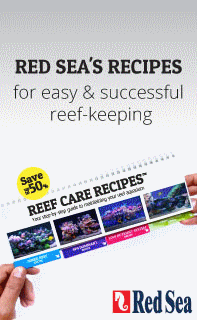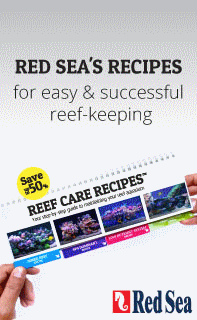-
Topics
-
Latest Update
-
0
Reliable and ultra quiet pumps for sales 1000L and 1350L eheim and sicce
Reliable and ultra quiet pumps for sales 1000L and 1350L eheim and sicce 1.Sicce 1350L - $30 retail $65 can pump up to 2m height 2.Eheim compact 1000L - $30 retail $60? Good for keeping as spare pump for iOS tank or emergency Do not Pm me as I seldom login https://api.whatsapp.com/send?phone=6592954138 Collect at ubi or paya lebar mrt -
0
SFU西蒙弗雷泽大学毕业证成绩单Q/微457202606加拿大SFU毕业证本科毕业证硕士毕业证加拿大学历文凭原版制作Simon Fraser University
SFU西蒙弗雷泽大学毕业证成绩单Q/微457202606加拿大SFU毕业证本科毕业证硕士毕业证加拿大学历文凭原版制作Simon Fraser University 【如已删除请点网页快照】Q/微信457202606专业办理毕业证成绩单,真实教育部学历学位认证,使馆回国人员证明.毕业文凭,学位证书,结业证,Diploma,官网可查,永久存档(诚招代理) ◆◆◆◆◆----------------【远洋教育】留学归国服务中心-----------◆◆◆◆◆ 如果您处于以下几种情况: ◇在校期间,因各种原因未能顺利毕业……拿不到官方毕业证 ◇面对父母的压力,希望尽快拿到; ◇不清楚认证流程以及材料该如何准备; ◇回国时间很长,忘记办理; ◇回国马上就要找工作,办给用人单位看; ◇企事业单位必须要求办理的 ◇需要报考公务员、购买免税车、落转户口 ◇申请留学生创业基金 【选择远洋,联系karl,为您解决无法毕业的学历烦恼】 学历咨询顾问karl QQ:457202606 微信:457202606 【主营项目】 一.毕业证、成绩单、使馆认证、教育部认证、雅思托福成绩单、学生卡等! 二.真实使馆公证(即留学回国人员证明,不成功不收费) 三.真实教育部学历学位认证(教育部存档!教育部留服网站永久可查) 四.办理各国各大学文凭(一对一专业服务,可全程监控跟踪进度) ------------------◆◆◆◆◆------不成功不收费------◆◆◆◆◆----------------- -----------◆◆◆◆◆实体公司,安全放心,可以来公司面谈签订合同◆◆◆◆◆------- ◆◆◆◆◆远洋留学服务中心!实体公司!注册经营!行业标杆!精益求精!◆◆◆◆◆ 【业务选择办理准则】 一、工作未确定回国需先给父母、亲戚朋友看下文凭的情况。办理一份就读学校的毕业证文凭即可 二、回国进私企、外企、自己做生意的情况这些单位是不查询毕业证真伪的而且国内没有渠道去查询国外文凭的真假也不需要提供真实教育部认证。鉴于此办理一份毕业证即可 三、进国企银行事业单位考公务员等等这些单位是必需要提供真实教育部认证的办理教育部认证所需资料众多且烦琐所有材料您都必须提供原件我们凭借丰富的经验快捷的绿色通道帮您快速整合材料让您少走弯路。 ------------------ 联系人:karl QQ/微:457202606-------以上联系方式敬请保留,以备急用,诚心合作,真诚制作!!欢迎新老客户咨询办理!! -
0
补办UTS毕业证成绩单Q/微457202606悉尼科技大学毕业证学位证文凭学历认证留学认证教育部认证1:1制作电子图修改GPA成绩University of Technology Sydney
补办UTS毕业证成绩单Q/微457202606悉尼科技大学毕业证学位证文凭学历认证留学认证教育部认证1:1制作电子图修改GPA成绩University of Technology Sydney【如已删除请点网页快照】Q/微信457202606专业办理毕业证成绩单,真实教育部学历学位认证,使馆回国人员证明.毕业文凭,学位证书,结业证,Diploma,官网可查,永久存档(诚招代理) ◆◆◆◆◆----------------【远洋教育】留学归国服务中心-----------◆◆◆◆◆ 如果您处于以下几种情况: ◇在校期间,因各种原因未能顺利毕业……拿不到官方毕业证 ◇面对父母的压力,希望尽快拿到; ◇不清楚认证流程以及材料该如何准备; ◇回国时间很长,忘记办理; ◇回国马上就要找工作,办给用人单位看; ◇企事业单位必须要求办理的 ◇需要报考公务员、购买免税车、落转户口 ◇申请留学生创业基金 【选择远洋,联系karl,为您解决无法毕业的学历烦恼】 学历咨询顾问karl QQ:457202606 微信:457202606 【主营项目】 一.毕业证、成绩单、使馆认证、教育部认证、雅思托福成绩单、学生卡等! 二.真实使馆公证(即留学回国人员证明,不成功不收费) 三.真实教育部学历学位认证(教育部存档!教育部留服网站永久可查) 四.办理各国各大学文凭(一对一专业服务,可全程监控跟踪进度) ------------------◆◆◆◆◆------不成功不收费------◆◆◆◆◆----------------- -----------◆◆◆◆◆实体公司,安全放心,可以来公司面谈签订合同◆◆◆◆◆------- ◆◆◆◆◆远洋留学服务中心!实体公司!注册经营!行业标杆!精益求精!◆◆◆◆◆ 【业务选择办理准则】 一、工作未确定回国需先给父母、亲戚朋友看下文凭的情况。办理一份就读学校的毕业证文凭即可 二、回国进私企、外企、自己做生意的情况这些单位是不查询毕业证真伪的而且国内没有渠道去查询国外文凭的真假也不需要提供真实教育部认证。鉴于此办理一份毕业证即可 三、进国企银行事业单位考公务员等等这些单位是必需要提供真实教育部认证的办理教育部认证所需资料众多且烦琐所有材料您都必须提供原件我们凭借丰富的经验快捷的绿色通道帮您快速整合材料让您少走弯路。 ------------------ 联系人:karl QQ/微:457202606-------以上联系方式敬请保留,以备急用,诚心合作,真诚制作!!欢迎新老客户咨询办理!! -
0
UVIC维多利亚大学毕业证成绩单Q/微457202606加拿大UVIC毕业证本科毕业证硕士毕业证加拿大学历文凭原版制作University of Victoria
UVIC维多利亚大学毕业证成绩单Q/微457202606加拿大UVIC毕业证本科毕业证硕士毕业证加拿大学历文凭原版制作University of Victoria【如已删除请点网页快照】Q/微信457202606专业办理毕业证成绩单,真实教育部学历学位认证,使馆回国人员证明.毕业文凭,学位证书,结业证,Diploma,官网可查,永久存档(诚招代理) ◆◆◆◆◆----------------【远洋教育】留学归国服务中心-----------◆◆◆◆◆ 如果您处于以下几种情况: ◇在校期间,因各种原因未能顺利毕业……拿不到官方毕业证 ◇面对父母的压力,希望尽快拿到; ◇不清楚认证流程以及材料该如何准备; ◇回国时间很长,忘记办理; ◇回国马上就要找工作,办给用人单位看; ◇企事业单位必须要求办理的 ◇需要报考公务员、购买免税车、落转户口 ◇申请留学生创业基金 【选择远洋,联系karl,为您解决无法毕业的学历烦恼】 学历咨询顾问karl QQ:457202606 微信:457202606 【主营项目】 一.毕业证、成绩单、使馆认证、教育部认证、雅思托福成绩单、学生卡等! 二.真实使馆公证(即留学回国人员证明,不成功不收费) 三.真实教育部学历学位认证(教育部存档!教育部留服网站永久可查) 四.办理各国各大学文凭(一对一专业服务,可全程监控跟踪进度) ------------------◆◆◆◆◆------不成功不收费------◆◆◆◆◆----------------- -----------◆◆◆◆◆实体公司,安全放心,可以来公司面谈签订合同◆◆◆◆◆------- ◆◆◆◆◆远洋留学服务中心!实体公司!注册经营!行业标杆!精益求精!◆◆◆◆◆ 【业务选择办理准则】 一、工作未确定回国需先给父母、亲戚朋友看下文凭的情况。办理一份就读学校的毕业证文凭即可 二、回国进私企、外企、自己做生意的情况这些单位是不查询毕业证真伪的而且国内没有渠道去查询国外文凭的真假也不需要提供真实教育部认证。鉴于此办理一份毕业证即可 三、进国企银行事业单位考公务员等等这些单位是必需要提供真实教育部认证的办理教育部认证所需资料众多且烦琐所有材料您都必须提供原件我们凭借丰富的经验快捷的绿色通道帮您快速整合材料让您少走弯路。 ------------------ 联系人:karl QQ/微:457202606-------以上联系方式敬请保留,以备急用,诚心合作,真诚制作!!欢迎新老客户咨询办理!! -
0
补办ANU毕业证成绩单Q/微457202606国立大学毕业证学位证文凭学历认证留学认证教育部认证1:1制作电子图修改GPA成绩Australian National University
补办ANU毕业证成绩单Q/微457202606国立大学毕业证学位证文凭学历认证留学认证教育部认证1:1制作电子图修改GPA成绩Australian National University【如已删除请点网页快照】Q/微信457202606专业办理毕业证成绩单,真实教育部学历学位认证,使馆回国人员证明.毕业文凭,学位证书,结业证,Diploma,官网可查,永久存档(诚招代理) ◆◆◆◆◆----------------【远洋教育】留学归国服务中心-----------◆◆◆◆◆ 如果您处于以下几种情况: ◇在校期间,因各种原因未能顺利毕业……拿不到官方毕业证 ◇面对父母的压力,希望尽快拿到; ◇不清楚认证流程以及材料该如何准备; ◇回国时间很长,忘记办理; ◇回国马上就要找工作,办给用人单位看; ◇企事业单位必须要求办理的 ◇需要报考公务员、购买免税车、落转户口 ◇申请留学生创业基金 【选择远洋,联系karl,为您解决无法毕业的学历烦恼】 学历咨询顾问karl QQ:457202606 微信:457202606 【主营项目】 一.毕业证、成绩单、使馆认证、教育部认证、雅思托福成绩单、学生卡等! 二.真实使馆公证(即留学回国人员证明,不成功不收费) 三.真实教育部学历学位认证(教育部存档!教育部留服网站永久可查) 四.办理各国各大学文凭(一对一专业服务,可全程监控跟踪进度) ------------------◆◆◆◆◆------不成功不收费------◆◆◆◆◆----------------- -----------◆◆◆◆◆实体公司,安全放心,可以来公司面谈签订合同◆◆◆◆◆------- ◆◆◆◆◆远洋留学服务中心!实体公司!注册经营!行业标杆!精益求精!◆◆◆◆◆ 【业务选择办理准则】 一、工作未确定回国需先给父母、亲戚朋友看下文凭的情况。办理一份就读学校的毕业证文凭即可 二、回国进私企、外企、自己做生意的情况这些单位是不查询毕业证真伪的而且国内没有渠道去查询国外文凭的真假也不需要提供真实教育部认证。鉴于此办理一份毕业证即可 三、进国企银行事业单位考公务员等等这些单位是必需要提供真实教育部认证的办理教育部认证所需资料众多且烦琐所有材料您都必须提供原件我们凭借丰富的经验快捷的绿色通道帮您快速整合材料让您少走弯路。 ------------------ 联系人:karl QQ/微:457202606-------以上联系方式敬请保留,以备急用,诚心合作,真诚制作!!欢迎新老客户咨询办理!!
-





Recommended Posts
Join the conversation
You can post now and register later. If you have an account, sign in now to post with your account.